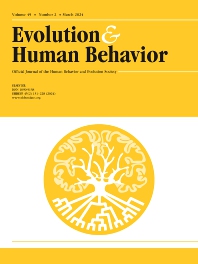Journals in Anthropology
Journals in Anthropology
Our anthropology resources encompass human cultural, social, biological, and linguistic studies, offering comprehensive coverage of human diversity and evolution. Featuring foundational theories, ethnographic case studies, and contemporary research, this portfolio supports scholars, students, and practitioners in understanding societal development, cultural practices, and human behavior. From kinship systems to globalization, these resources promote interdisciplinary approaches and critical insights, enabling users to explore the complexities of human life across time and space.
Legal Medicine
Official Journal of the Japanese Society of Legal Medicine.Legal Medicine provides an international forum for the publication of original articles, reviews and correspondence on subjects that cover practical and theoretical areas of interest relating to the wide range of legal medicine.Subjects covered include forensic pathology, toxicology, odontology, anthropology, criminalistics, immunochemistry, hemogenetics and forensic aspects of biological science with emphasis on DNA analysis and molecular biology. Submissions dealing with medicolegal problems such as malpractice, insurance, child abuse or ethics in medical practice are also acceptable.- ISSN: 1344-6223

Evolution and Human Behavior
Official Journal of the Human Behavior and Evolution Society Members of the Society receive reduced cost subscriptions to the journal.Evolution and Human Behavior is an interdisciplinary journal, presenting research reports and theory in which evolutionary perspectives are brought to bear on the study of human behavior. It is primarily a scientific journal, but submissions from scholars in the humanities are also encouraged. Papers reporting on theoretical and empirical work on other species will be welcome if their relevance to the human animal is apparent.- ISSN: 1090-5138

Forensic Science International
An international journal dedicated to the applications of medicine and science in the administration of justice.Forensic Science International is the flagship journal in the prestigious Forensic Science International family, publishing the most innovative, cutting-edge, and influential contributions across the forensic sciences. Fields include: forensic pathology and histochemistry, chemistry, biochemistry and toxicology, biology, serology, odontology, psychiatry, anthropology, digital forensics, the physical sciences, firearms, and document examination, as well as investigations of value to public health in its broadest sense, and the important marginal area where science and medicine interact with the law.The journal publishes:Case ReportsCommentariesL... to the EditorOriginal Research Papers (Regular Papers)Rapid CommunicationsReview ArticlesTechnical NotesForensic Science International adheres to strict ethical publication guidelines and actively supports a culture of inclusive and representative publication. For any submission enquiries, please contact the respective Editor.The Forensic Science International journals offer comprehensive and pioneering coverage within the forensic sciences and beyond, disseminating ground-breaking discoveries, highly specialised research, and foundational science across the family of publications. The FSI portfolio comprises of:Forensic Science InternationalForensi... Science International: Animals and EnvironmentsForensic Science International: Digital InvestigationForensi... Science International: GeneticsForensic Science International: Genetics Supplement SeriesForensic Science International: Mind and LawForensic Science International: ReportsForensic Science International: Synergy- ISSN: 0379-0738

Journal of Archaeological Science: Reports
Journal of Archaeological Science: Reports is aimed at all scholars, from anthropological archaeologists to scientific specialists, who are engaged with the application of scientific techniques and methods throughout the entire field of archaeology. The journal focuses on the results of scientific investigations applied to archaeological research questions, problems, and debates of wide interest and, in turn, their significance for understanding behaviors in the past. It also provides a forum, after consultation with the editors, for reviews or debates about important issues or “hot topics” in scientific archaeology and their impacts in the broader field.Journal of Archaeological Science: Reports publishes papers of excellent archaeological science, and both scientific and archaeological aspects of the research should be well represented within all manuscripts submitted to the journal. The majority of our accepted submissions are Research Articles in which a scientific technique sheds light on a clearly defined archaeological research question or debate. Shorter Communications, Reviews, and other article formats are also welcome, but interested authors are encouraged to consult with the editors prior to submitting manuscripts in these formats.Research should be demonstrably contextualized within the region and period of interest (that is, it is situated in the relevant geographic, chronological, historical, etc. contexts) and, ideally, within a topic or question of broad interest or significance to a global audience. Applications of scientific techniques must be underpinned by clear archaeological or methodological research questions and be set within established and/or developing research frameworks. The submission of papers focused around the analysis of single objects or small sample sizes (e.g., a low number of sherds) and papers situated in conservation studies are discouraged, unless of exceptional quality and/or international significance.Submiss... within our publishing scope will be considered by an Editor-in-Chief and, after passing desk review, will be reviewed by at least two peer reviewers. Submissions might also be handled by Associate Editors with relevant subject expertise. We aim to reach a first decision within 6 weeks.We welcome suggestions for thematic sets of papers arising from meetings focused on any aspect of scientific archaeology, and we publish Special Issues of high-quality papers deriving from conferences and symposia on the archaeological sciences.We welcome submissions from scholars anywhere in the world and at any career stage, and we especially encourage contributions from early career researchers as well as archaeologists from under-represented communities or countries.- ISSN: 2352-409X

Journal of Anthropological Archaeology
An innovative, international publication, the Journal of Anthropological Archaeology is devoted to the development of theory and, in a broad sense, methodology for the systematic and rigorous understanding of the organization, operation, and evolution of human societies.The discipline served by the journal is characterized by its goals and approach, not by geographical or temporal bounds. The data utilized or treated range from the earliest archaeological evidence for the emergence of human culture to historically documented societies and the contemporary observations of the ethnographer, ethnoarchaeologist, sociologist, or geographer. These subjects appear in the journal as examples of cultural organization, operation, and evolution, not as specific historical phenomena. The concomitant range of socioeconomic complexity encompasses the simplest human culture, or "proto-culture," as well as the most complex states or empires.- ISSN: 0278-4165
